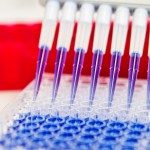Link to Pubmed [PMID] – 35726083
Link to DOI – 10.1002/art.42265
Arthritis Rheumatol 2022 Dec; 74(12): 1991-2002
Primary Sjögren’s syndrome (SS) is the second most frequent systemic autoimmune disease, affecting 0.1% of the general population. To characterize the molecular and clinical variabilities among patients with primary SS, we integrated transcriptomic, proteomic, cellular, and genetic data with clinical phenotypes in a cohort of 351 patients with primary SS.We analyzed blood transcriptomes and genotypes of 351 patients with primary SS who were participants in a multicenter prospective clinical cohort. We replicated the transcriptome analysis in 3 independent cohorts (n = 462 patients). We determined circulating interferon-α (IFNα) and IFNγ protein concentrations using digital single molecular arrays (Simoa).Transcriptome analysis of the prospective cohort showed a strong IFN gene signature in more than half of the patients; this finding was replicated in the 3 independent cohorts. Because gene expression analysis did not discriminate between type I IFN and type II IFN, we used Simoa to demonstrate that the IFN transcriptomic signature was driven by circulating IFNα and not by IFNγ protein levels. IFNα protein levels, detectable in 75% of patients, were significantly associated with clinical and immunologic features of primary SS disease activity at enrollment and with increased frequency of systemic complications over the 5-year follow-up. Genetic analysis revealed a significant association between IFNα protein levels, a major histocompatibility (MHC) class II haplotype, and anti-SSA antibody. Additional cellular analysis revealed that an MHC class II HLA-DQ locus acts through up-regulation of HLA class II molecules on conventional dendritic cells.We identified the predominance of IFNα as a driver of primary SS variability, with IFNα demonstrating an association with HLA gene polymorphisms.














